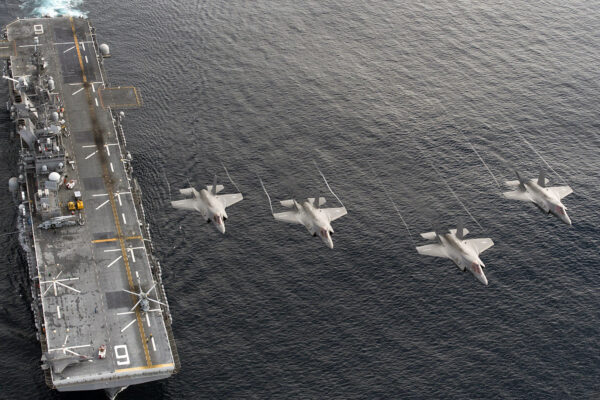
Donald Trump heralded a new era of American isolationism last week, proclaiming in his first public address as president, “From this day forward, it’s going to be only America First.”
It remains to be seen how far Trump will go in reversing seven decades of American grand strategy, but he has already united Republican-leaning thinkers who normally disagree on foreign policy in despair.
On the neoconservative side, Charles Krauthammer, an advocate of the Iraq War, insists that Trump is wrong to portray American support for its allies as a mindless act of charity. Rather, it has been an exercise in enlightened self-interest:
After all, it was indeed better to subsidize foreign armies — German, South Korean, Turkish and dozens of others — and have them stand with us, rather than stationing even more American troops everywhere around the world at greater risk of both blood and treasure.
The international system of open commerce and democratic alliances that America has presided over since the late 1940s has enabled it, and the West generally, to grow and thrive, argues Krauthammer.
“Global leadership is what made America great,” he writes — playing on Trump’s promise to make America great “again”.
A more dangerous world
Adam Garfinkle, a scholar on the realist side of the conservative spectrum, agrees, writing in The American Interest that the United States’ provision of common security goods has not only decreased overall military spending; it has lowered the incentives for the proliferation of weapons of mass destruction.
Without this American function, performed consistently since the end of World War II, we would have had to spend and would now be spending vastly more on defense, given our global-scale interests, in order to live in a significantly more dangerous world.
In another column, Garfinkle sketches out what such a more dangerous world might look like:
We would be back to a spheres-of-influence world in which the greatest powers dominate their geographical and cultural peripheries and all the other great powers let them do so as long as their own spheres are not put at risk.
Such a world would be congenial to Iran, according to Garfinkle; the very country Trump has singled out as an enemy of the United States. But it would be far less congenial to the Arabs, with whom America has allied for decades.
Russia would benefit, but not Poland, Ukraine and America’s other NATO allies in Central and Eastern Europe.
So would China — so long as it restrains its ambition to East Asia — but not Korea, Singapore, Taiwan, Vietnam and possibly Japan: all countries America has allied with precisely to counterbalance Chinese power and all countries Trump has disheartened by pulling the United States out of the Trans Pacific Partnership.
It’s no accident that nearly every person who has thought long and hard about America’s role in the world has reached the same conclusion. If there’s one thing strategists left, right and center agree on, it’s that American primacy, American norms and America’s alliances have made the planet more democratic, more prosperous and more at peace.
Now Trump proposes to tear it all down.
